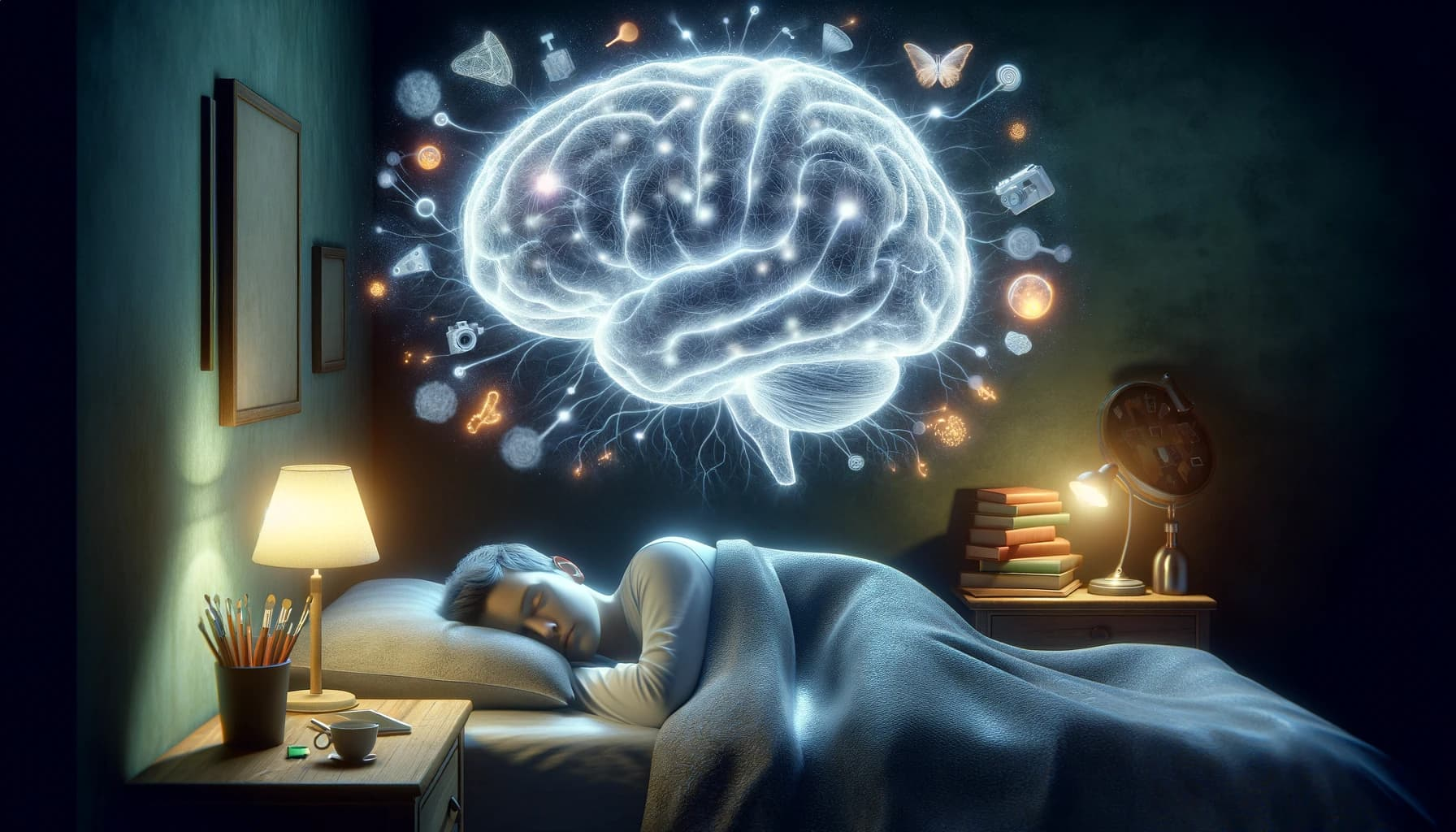When it comes to getting a good night's rest, understanding the sleep cycle is crucial.
Ever wondered why you sometimes wake up groggy, even after eight
hours of sleep?
Or why a quick nap seems to rejuvenate you more than a longer
one?
The answers lie in the fascinating science of sleep cycles.
What Is a Sleep Cycle?
A sleep cycle is essentially the pattern of various stages of
sleep that an individual goes through during one night.
Each night, your sleep isn't one long, uninterrupted interval of
unconscious bliss, but a series of repeated cycles.
On average, a full sleep cycle takes about 90 minutes and
involves two main types of sleep: Non-REM (Rapid Eye Movement) sleep and REM
sleep.
The Different Stages of a Sleep Cycle
Let's break down the sleep cycle into its components to see what
actually goes on while you're dreaming away.
Stage 1: Light Sleep
This stage is a light, transitional sleep that lasts for about
5-10 minutes.
In this phase, you can be easily awakened and might feel like
you haven't slept at all.
Your muscles relax and your heart rate slows down.
Stage 2: Slightly Deeper Sleep
Stage 2 makes up about 50% of your total sleep time.
Your body temperature drops, and breathing and heart rate become
more regular.
Your brain starts producing sleep spindles, which are bursts of
rapid, rhythmic brain wave activity.
Stage 3: Deep Sleep
This is the deep sleep stage, essential for feeling refreshed in
the morning.
It comprises about 20-25% of your sleep cycle.
Your muscles are relaxed, and your breathing and heart rate are
at their lowest levels.
This stage is also when your body releases growth hormone and
repairs tissues, crucial for physical health.
REM Sleep
The REM stage is all about dreams and memory consolidation.
Your brain is almost as active as when you're awake.
Your eyes move rapidly under your eyelids, hence the name Rapid
Eye Movement.
This stage is essential for emotional regulation, learning, and
memory formation.
Why Is Understanding the Sleep Cycle
Important?
Now that you know what happens during each stage, you might
wonder why these details matter.
Understanding your sleep cycle can help you optimize your sleep
quality and overall health.
Let’s explore some practical implications:
Wake Up Refreshed
Waking up at the end of a sleep cycle is optimal, as it's the
lightest sleep phase.
This explains why sometimes a 90-minute nap can feel more
refreshing than a restless 8-hour “sleep marathon.”
Time Your Naps
Short naps should typically last for 20-30 minutes to avoid
entering deep sleep stages, which can make you feel groggy upon waking.
Longer naps, if timed well, should ideally be around 90 minutes
to ensure a full sleep cycle is completed.
Improve Productivity
People who understand and respect their sleep cycles can perform
better during the day.
Quality sleep improves cognitive function, focus, and overall
productivity.
The Biological Clock and Sleep Cycle
Your sleep cycle is governed by your internal body clock, known
as the circadian rhythm.
This biological clock regulates various physiological processes,
including your sleep-wake cycle.
Disruptions in your circadian rhythm, like those caused by jet
lag or shift work, can seriously affect your sleep cycle and overall health.
Maintaining a Consistent Schedule
Going to bed and waking up at the same time each day helps
regulate your circadian rhythm.
This makes it easier to fall asleep and wake up naturally,
ensuring better sleep quality.
Common FAQs about Sleep Cycles
How many sleep cycles do you need per
night?
Most people go through 4 to 6 sleep cycles per night, depending
on their total sleep duration.
Can you skip stages of sleep?
No, you can't skip stages of sleep. Your body naturally cycles
through all phases to ensure restorative functions are completed.
Does everyone have the same sleep cycle?
While the fundamental structure is similar, individual
variations exist based on age, lifestyle, and genetic factors.
What happens if you wake up during REM
stage?
Waking up during REM can leave you feeling disoriented and
groggy because your brain is highly active during this phase.
Tips for Optimizing Your Sleep Cycle
Now that you’re equipped with the knowledge of sleep cycles,
here are some actionable tips for making the most of your slumber:
- Stick to a
Sleep Schedule: Consistency is key. Try to go to bed and
wake up at the same time every day, even on weekends.
- Create a
Relaxing Bedtime Routine: Activities like reading a book
or taking a warm bath can help signal your body that it's time to wind
down.
- Limit Blue
Light Exposure: Reduce screen time an hour before bed. Use
blue light filters if you absolutely must be on your device.
- Mind Your
Diet: Avoid
heavy meals, caffeine, and alcohol close to bedtime. Opt for a light snack
if you’re feeling hungry.
- Get Physical: Regular
exercise can help you fall asleep faster and enjoy deeper sleep. Just
avoid vigorous activity right before bed.
By understanding and respecting your sleep cycle, you can pave
the way for better health, both mentally and physically.
Conclusion: Master Your Sleep Cycle
Understanding your sleep cycle is the first step towards
optimizing your rest and, by extension, your daily performance and overall
well-being.
Whether you’re struggling with sleep issues or simply want to
improve your quality of rest, knowing what happens during each phase of sleep
can make all the difference.
Start by observing your sleep patterns, experimenting with
adjustments, and ultimately finding a routine that works best for you.

